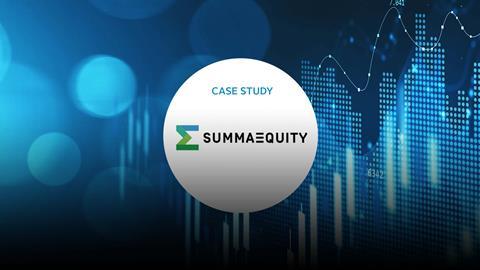- Signatory type: Investment manager
- HQ Country: Sweden
Summa Equity (“Summa”) was founded in 2016 with the clear purpose of investing in companies that are solving global challenges. Summa invests across three distinct themes of Resource Efficiency, Changing Demographics, and Tech-Enabled Transformation, encompassing numerous sustainability megatrends highlighted by the SDGs, including population growth, resource scarcity, energy transition, and the aging population.
Summa’s investment strategy is based on the belief that by investing in companies that are developing innovative solutions to global challenges, it can create a net positive impact against ESG challenges, and a future-proof portfolio which will outperform – a win-win for investors, portfolio companies, and society. Sustainability factors are therefore integrated as tools for value creation at all stages of the investment lifecycle, from sourcing, screening, and evaluating suitable investments, through to the ownership period, and eventually to the sale of the company.
Sourcing
Potential investments are screened against the SDGs, to ensure that their product or service delivers a meaningful contribution to one or more of the goals. Only companies with a positive ESG impact will progress from the sourcing stage and once identified, their main impacts are assessed using the Impact Management Project’s five impact dimensions: what, who, how much, contribution and risk.
Due diligence
Sustainability risks are initially assessed alongside other types of risk as part of a rigorous due diligence process, with Summa typically working alongside external consultants and experts to carry out these evaluations. Different ESG issues are prioritised for each potential investment, depending on their materiality to the business, its stakeholders, and the level of impact. If the process reveals material adverse impacts or other sustainability risks that cannot be resolved or mitigated, Summa will not invest.
Stewardship
Summa views managing ESG issues and solving global challenges as tools to drive performance, accelerate growth, decrease risk, improve operational efficiency, improve talent attraction and retention, and drive higher exit multiples. Therefore, key to Summa’s approach is how it seeks to co-create this value during the ownership phase, working proactively with portfolio companies to understand where value can be unlocked through understanding the materiality of ESG factors. Summa looks for companies that aspire to be leaders in ESG integration and SDG impact, as it believes these elements are core to building long-term resilience, which goes beyond simple compliance.
Reporting
An important part of this process is transparent reporting against relevant KPIs to enable fact-based decision-making, facilitate the execution of the company strategy, and drive value. Summa’s dedicated ESG team works alongside the deal teams and company managers to define metrics and targets that are related both to company performance and societal value. In addition, Summa believes that diversity, carbon efficiency and decent work conditions are material to sustainable outperformance for all companies and has therefore set related targets at the portfolio level.
Summa’s approach to reporting aligns closely with relevant ESG standards and regulations, primarily those of the PRI, the 10 principles of the UN Global Compact, the Task Force on Climate-related Financial Disclosures (TCFD), the EU Taxonomy, and the Sustainable Finance Disclosure Regulation requirements.
Summa is also committed to pushing the limits on quantifying positive impact through its collaboration with the Impact Weighted Accounts (IWA) project at Harvard Business School, which has developed a method of monetising externalities and positive outcomes. For the first time, Summa included an estimate of the costs associated with the climate impact of its companies in its Portfolio Report 2020, discovering that the portfolio could add up to 7 percentage points in profit margin, if companies were to internalise this value. In the upcoming report, Summa will use the same methodology to measure employment and product impact.
Portfolio company example: Sortera
In April 2021 Summa, completed its first full exit of the Sweden-based environmental service provider Sortera. Since Summa’s acquisition of the company in 2016, Sortera has evolved from a Stockholm-based company focusing on collection of construction waste, to a Nordic leader within the collection, recycling, processing, and sale of residual products from the building and construction sector. Throughout Summa’s ownership period, Sortera has grown revenue seven-fold, adding value through add-ons, organisational improvements, and a focus on sustainability. Summa worked with Sortera on several initiatives, including replacing the existing sorting line with one that runs on 100% renewable electricity, hiring a dedicated Head of Sustainability, and supporting the process of measuring and reporting Scope 1, 2 and 3 emissions. The Sortera growth story demonstrates Summa’s sustainable thematic approach and how integrating ESG at all stages of the investment process can generate value beyond returns.
Outcomes, benefits, challenges and next steps
Summa’s value creation approach has resulted in a diverse portfolio of innovative companies that are responding to a wide range of challenges - ranging from enabling the circular economy, to providing sustainable food sources, and progressing the science behind precision medicine – while also integrating ESG parameters into their internal processes and external reporting. Summa aims to continuously improve its processes, including its reporting, stakeholder engagement and due diligence methodologies, in response to a rapidly evolving ESG landscape. Part of this will be to include a monetized externality analysis through the integration of impact-weighted accounts across all portfolio companies.
Furthermore, Summa aims to continuously evolve and improve its investment strategy to maximise the value and positive impact it creates across its portfolio. Part of that work will be to assist portfolio companies in setting climate action plans to align with the 1.5-degree target of the Paris Agreement, ultimately creating tangible and realistic paths to reach net zero emissions well ahead of 2050.











